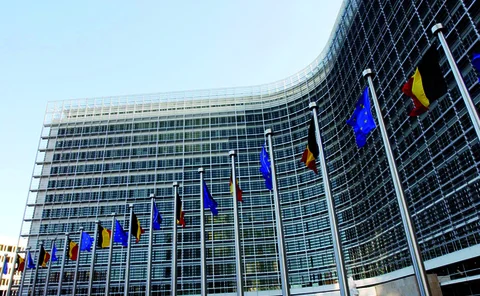Financial stability
Central banks accused of collateral hypocrisy
Despite the funding risk it creates, central banks still refuse to sign two-way collateral agreements
BIS reviews macroprudential literature
Literature review published by the Bank for International Settlements finds gaps in assessing the effectiveness of macroprudential tools, studying interaction with monetary policy
CBRC chief adviser Sheng brands financial engineering ‘a cancer’
Andrew Sheng, a veteran regulator who acts as a chief adviser to China’s top banking regulator, believes ‘creative destruction’ needs to take place when financial engineering goes beyond an optimal level, as it did in 2007-2008.
ECB opinion on derivatives reform spurs debate on CCP liquidity resilience
French authorities welcome ECB's call for the resilience of central bank money to be recognised in EU derivatives legislation.
Stability objective should drive financial policy, says BoE’s Bailey
Bank's Bailey says stability goal must not be swayed by “murky compromises with other objectives”
Imbalances could treble in next two decades: Bank's Haldane
Bank of England executive director Andy Haldane charts course of global imbalances, pointing to trends likely to widen them
Basel III won’t be a problem if implemented correctly, says Bank of England
Latest Financial Stability Report stresses importance of long transition to new rules, and concerns over central counterparty clearing
Congress raises alarm on US mortgage fraud risk
Tarp oversight panel warns that bank incompetence threatens financial system
Large pension funds a threat to financial stability – European Commission
European Commission says pension funds should also be classed as “too big to fail”
Risk USA: Paulson refused to save Lehman over 'bailout guy' characterisation
Former White House economist details civil war between Bush administration and US Treasury
Bond investors dampen talk of 'currency wars'
Currency manipulation is gaining ground as governments look to grow exports and control inflows. But any talk of imminent currency conflict is overblown, say credit investors.
Recovery has lost steam and risks remain high, IMF warns
IMF's latest financial stability report strikes a cautionary note about the stalled economic recovery
Bank funding blow from ECB repo withdrawal
As the European Central Bank winds down its repo facility, there are fears that traditional avenues of securitisation issuance are still not viable.
Spanish banks tap ECB for record €130bn in funding
Increased borrowing reflects fears on country's banking sector.
FDIC creates new units as US regulators expand for Dodd-Frank systemic oversight
US regulators are hiring more staff in preparation for Dodd-Frank changes
BIS steps up pressure to end financial sector support
Emergency measures brought in during the crisis are now doing more harm than good, annual report says
Swap lines better than foreign reserves during crises, research finds
Reciprocal currency swap agreements between central banks bolstered market stability in Korea during the crisis in 2007 and 2008
Goodhart: CoCos 'not silver bullets' for bank capital reform
Regulators should ban dividend payments or curb banker pay to conserve cash, instead of championing Cocos, says economist
Risk Europe: ECB insists eurozone bonds decision was its own
Political pressure played no part in ECB decision to buy bonds, says board member
Systemic risk regulators should direct policy not just give warnings, says HSBC's Haswell
Past experience suggests the new financial stability bodies should direct regulatory policies, not just warn about instability
Bernanke rules out repeat of Scap stress tests
Last year's Scap stress tests for US banks were a one-off, the Fed chairman said today.
ECB decision could be critical in Greek debt crisis
If Greek debt is downgraded again, much will depend on whether the ECB decides to keep accepting it as collateral.
Breaking up banks could increase instability, research finds
Banking systems with small numbers of large banks are more stable and less likely to undergo crises, according to World Bank and NBER economists.















